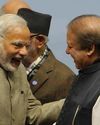Josy Joseph takes one through a very flawed India, one that we choose to close our eyes to. But he is also a rather biased author.

AT ONE LEVEL this is a cracker of a book. At another level, it is deeply problematic. So what makes A Feast of Vultures work?
Interest doesn’t flag as Josy Joseph takes one through a very flawed India, one that we are all familiar with but choose to close our eyes to. This is the India where there are still villages without access to basic services because people don’t have access to the right connections, even as a handful of people are able to get even illegitimate work done by just snapping their fingers.
This is not the account of an armchair journalist, pontificating on the basis of some desultory conversations on the rare occasions that he decides to move out of the confines of his office. It is hard reporting from the ground— whether it is in the interiors of rural India or of posh drawing rooms.
Joseph starts by taking the reader to Hridaychak village in Bihar where one man kept badgering everyone from district officials to the union minister’s office in Delhi to get a road sanctioned. From there, the book journeys through the world of naya netas who “get things done” in remote villages, the typists and stenographers of politicians who become centres for power, the arms dealers, the highly sophisticated lobbyists and powerful family members who influence policy and the cream of Corporate India, which has no scruples in turning to underworld dons. Joseph pulls no punches and hides nothing, not even big names. Middlemen are a legitimate function in any economy, he points out, even as he shows how Indian middlemen operate in a shadowy world, unlike in other countries.
This story is from the October 2016 edition of Swarajya Mag.
Start your 7-day Magzter GOLD free trial to access thousands of curated premium stories, and 9,000+ magazines and newspapers.
Already a subscriber ? Sign In
This story is from the October 2016 edition of Swarajya Mag.
Start your 7-day Magzter GOLD free trial to access thousands of curated premium stories, and 9,000+ magazines and newspapers.
Already a subscriber? Sign In

Refuging Progess
There is a well-orchestrated global conspiracy to deny scientific and technological developments from the West to Third World countries.

The Monk Of Science
Vivekananda believed that Religion should be subjected to scientific methods of investigation. The third and concluding part of our series on the Swami and his views on science.
The Next Step
Indian technical manpower can be trained for high-value-added emerging services in the era of mass commoditisation of hardware.
The Threat Of Autarchy
The force of globalisation is an irreversible reality, and it is countries like India and China that will nurture it going forward.

Neanderthals: The Womb Of Caves
Recent discoveries indicate that Neanderthals may have had a rich inner life, including symbolic thought. Indeed, they may have been the progenitors of human religions.

Getting India's World Right
Incremental concessions will get India nowhere with Pakistan and China. What we need is a classically conservative foreign policy, based on realism.

The Hesitant Orbit
In order to march boldly ahead into the deep space, New Delhi must work towards building a station, boost its techno-economic planning and use the Indian Space Research Organisation smartly.

Nudges And Narratives
The debate surrounding Sanjay Leela Bhansali’s Padmavati brings India a complex network of portraits within a cultural world-system.

The Spell Of Specialisation
THE INDIAN ADMINISTRATIVE SERVICE NEEDS AN URGENT REJIG. THE KEY TO SPEED AND EFFICIENCY LIES IN PUTTING AN END TO A GENERALIST APPROACH AND IN GOING FOR A NEW SERVICE.
The Great Gamble
With demonetisation, the prime minister has taken a huge risk— both economic and political. He must succeed, because this move could transform both our economy and our society.